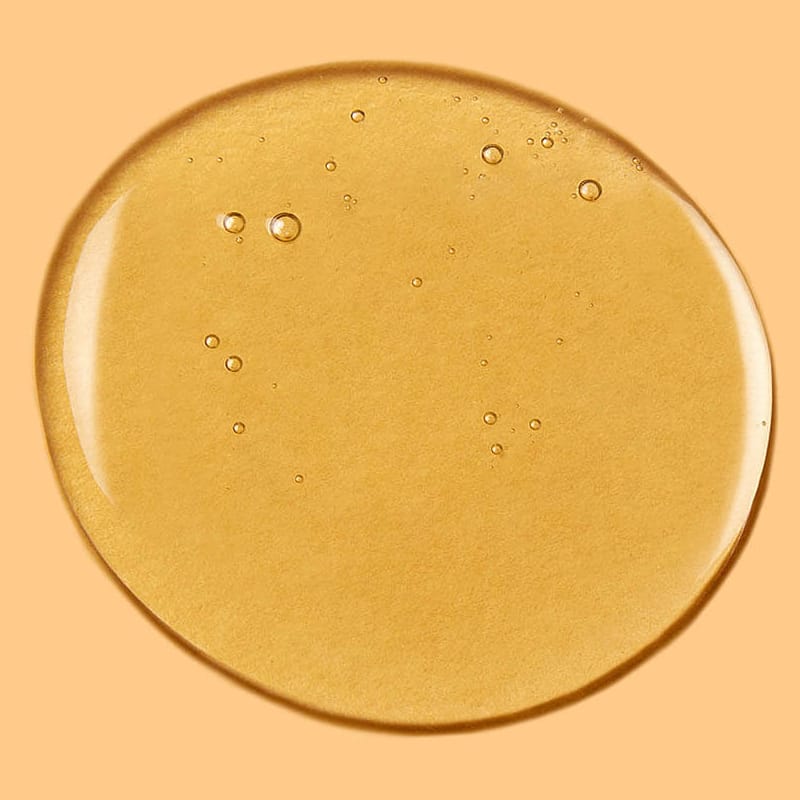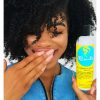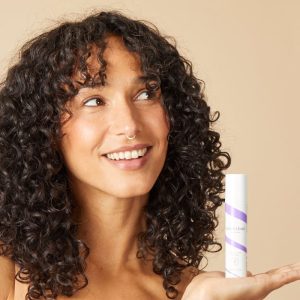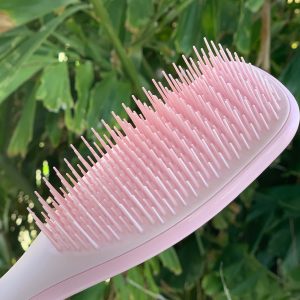Sulfate-free shampoo is more than just a trendy choice in hair care. Making the switch to these gentler natural hair products can significantly enhance the health of your curls without compromising their ability to eliminate excess oil and product buildup.
Sulfate-free hair products, particularly sulfate-free shampoo, are highly recommended for natural hair. But what exactly is sulfate-free shampoo, and why do sulfates have a notorious reputation in hair care? To understand this fully, let’s break it down from the beginning. Here’s a comprehensive overview of sulfates, their impact, and why we suggest adding sulfate-free shampoo for Black hair to your list of beauty products.
What Are Sulfates?
Let’s begin with the basics. What are sulfates? Sulfates are a category of detergents or surfactants found in numerous daily-use products such as facial cleansers, body washes, toothpaste, and shampoo. These products all share a common purpose—they are cleansers.
Sulfates serve a dual function in your products: primary cleansing and sensory enhancement. They are primarily chosen for their ability to attract both oil and water, facilitating deep cleansing. Furthermore, they contribute to the sensory experience by creating lather. This foaming action is associated with the feeling of cleanliness and offers a significant sensory effect that can be hard to let go of.
In recent years, sulfate-free routines and products have gained popularity, with sulfates often labeled as “harmful.” However, is that entirely accurate? Based on what we’ve discussed, sulfates seem to have some utility. Let’s delve deeper.
Are All Sulfates Problematic?
Various types of sulfates may appear on the ingredient lists of your beauty products. The three primary sulfates you’ll frequently encounter are sodium laureth sulfate, sodium lauryl sulfate, and ammonium laureth sulfate. Others worth noting include TEA Lauryl Sulfate, TEA-dodecylbenzenesulfonate, and Sodium Alkylbenzene Sulfonate.
Sulfates have garnered their reputation because of their potent cleansing abilities. While they effectively remove impurities from your hair and skin, they can be excessively harsh and strip away essential oils, resulting in dryness.
Not all sulfates are created equal; some are milder than others. Think of it as comparing liquid soap for a machine to one for handwashing. The handwashing soap is gentler on your skin. Sodium laureth sulfate, sodium lauryl sulfate, and ammonium laureth sulfate are designed to chemically break down oil, grease, and grime with minimal mechanical action, reducing the need for vigorous scrubbing. This is advantageous as it minimizes friction and potential damage, especially important since wet hair is more fragile and prone to breakage.
Beyond the previously mentioned sulfates, there are others known to be less harsh. These include Sodium Cocyl Isethionate, Sodium Lauryl Sulfoacetate, Sodium Socoyl (or lauryl/lauroyl) Sarcosinate, Ethyl PEG-15 Cocamine Sulfate, Dioctyl Sodium Sulfosuccinate, Sodium Lauryl Glucose Carboxylate, Methyl Cocoyl or Lauryl Taurate, and Sodium Cocoyl Glycinate.
What Is Sulfate-Free Shampoo?
Now, let’s turn our attention to the central question: What is sulfate-free shampoo? You may have already guessed the answer. Sulfate-free shampoo is simply a shampoo devoid of the sulfates we discussed earlier.
The key distinction is that the best sulfate-free shampoos typically produce less or no lather compared to sulfate-containing shampoos. Nevertheless, they clean your hair just as effectively without stripping away essential moisture.
Your scalp and hair naturally accumulate sebum and other residues, including sweat. Shampoo cleansers are responsible for breaking down these substances so they can be rinsed away. Sulfates are a common choice for this purpose, but they can inadvertently wash away beneficial oils your hair needs to stay hydrated and retain moisture.
So, does sulfate shampoo dry out hair? Yes, it can, as it cleanses both undesirable and necessary oils, potentially leading to dryness. This is where sulfate-free shampoo comes into play. You might be wondering, what does sulfate-free shampoo do for your hair? It does the opposite of what sulfate-containing shampoo does. Instead of stripping your hair of essential oils, it provides a deep clean without sacrificing moisture. Many of the best sulfate-free shampoos, such as Coco Creme Sulfate-Free Shampoo, employ alternative surfactants like coconut-based cleansers to effectively remove dirt and excess oil.
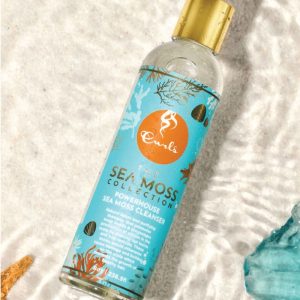
Is Sulfate-Free Shampoo Beneficial for Natural Hair?
Opting for sulfate-free shampoo is a smart choice for natural hair. Curls tend to be inherently drier due to their unique shape. Straight strands allow natural scalp oils to travel easily from root to tip, while curls create a twisting path where oils can become trapped near the root rather than evenly distributed throughout each strand.
With the challenge of retaining moisture, curly hair can ill afford any additional stripping caused by harsh cleansing agents like sulfates. This is one reason why many curly-haired individuals opt to skip traditional shampoo in favor of co-washing or using cleansing conditioners. Removing oils from the scalp can exacerbate dryness and potentially lead to breakage.
To address the question of whether sulfate shampoo dries out hair, the answer is yes, because the chemical composition of sulfates can be drying for all hair types, not just curls. Therefore, it’s advisable to avoid products containing sulfates whenever possible. The luxurious lather produced by sulfate shampoos might create the illusion of a thorough cleanse, but, in reality, it removes essential elements your hair requires. Getting a deep clean without harsh chemicals like sulfates is entirely possible. Building up excessive lather isn’t a prerequisite for effective hair washing, nor is lather exclusive to sulfates. Sulfate-free shampoos can be formulated with other ingredients to produce the lather you’re accustomed to. The bottom line is that sulfate-free shampoo is an excellent choice for natural hair, allowing curls to be clean while retaining critical natural oils.
Sulfate Alternatives for Natural Hair
As mentioned earlier, sulfates function as surfactants, effectively scrubbing away dirt, oil, and debris from hair. In light of this, alternatives exist, most notably coconut-based cleansers that achieve the same cleansing effect without depleting natural oils. You may still encounter the term “Sodium Lauryl,” but what follows in the ingredient name (e.g., Sodium Lauryl Sulfoacetate) determines the type of cleanser being used, which is what truly matters.
Some shampoos employ mild cleansing agents like Cocamidopropyl Hydroxysultaine and Sodium Cocoyl Isethionate (a coconut oil-derived cleansing agent) to clean hair while simultaneously infusing it with nourishing ingredients. This approach combines effective cleansing with hair care, providing the best of both worlds.

